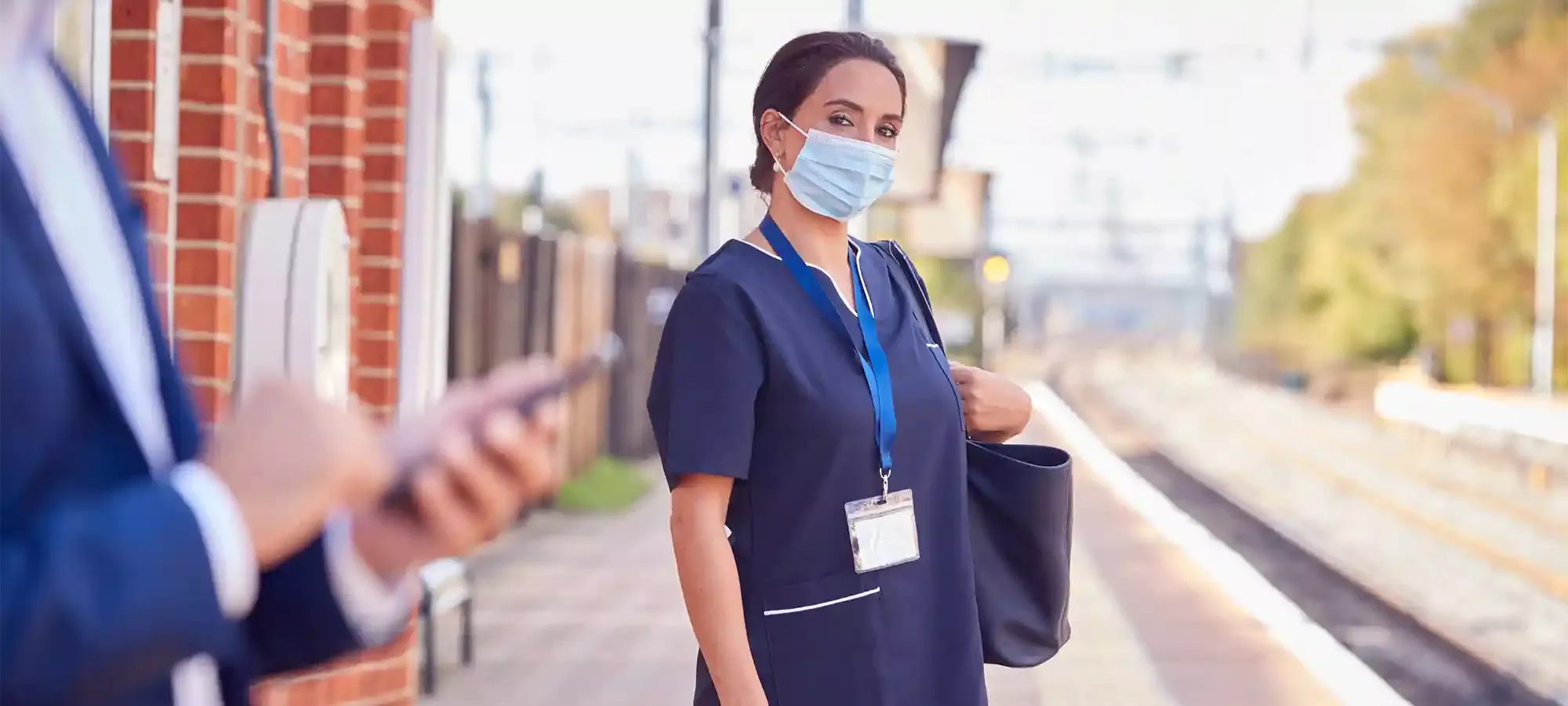Supporting sustainable transport for frontline workers during COVID-19
Overview
With the growing concern regarding the decarbonization of the transport, travel behaviour research has been constantly emphasizing the importance of analysing transport disruptions and subsequent individual traveller responses. Voluntary or involuntary, planned or unplanned, travel disruptions change stable mobility habits and preferences and increase attentiveness to alternative solutions (e.g., teleworking) and transport modes, hence, a higher probability of a conscious (re)consideration of current travel behaviour and a change is expected. From a policy planning perspective, moments of disruption are highly valuable as they open up a "window of opportunity" for introducing and encouraging the use of sustainable transportation alternatives and for promoting health and environmental concerns.
The recent pandemic and government-mandated restrictions on mobility constituted a set of important involuntary and unplanned life-changing events, which have disrupted mobility behaviours and travel habits for very large numbers of people. In this period, teleworking increased and physical commuting reduced on an unprecedented scale. However, in order for society to continue functioning, certain parts of the population had to continue travelling. These included essential workers such as health sector employees and delivery drivers who continued commuting as they did not have the option to work from home. This makes this group a highly relevant case for exploring the influences of the COVID-19 lockdown on daily travel behaviours and the potential barriers restricting the uptake of low-carbon transport modes. The underlying principle is to derive benefits from the disruption of mobility routines and the possible behaviour change triggered by changes in individual's 1) transportation options (e.g., worries over public transit, less congestion, desires for being outdoors walking and cycling) and 2) psychological characteristics (e.g., habit disruption, attitude, emotions, and social norm changes).
For this research, the case of McGill University Health Center (MUHC), Montreal, Canada is chosen for two reasons: First, with 10,000 employees, the super-hospital is a significant trip generator/attractor that has a strategic location near a big intermodal station with a good access to regional train, metro, and bus lines. Second, the researchers have access to rich data from before-the-pandemic situation due to Zahra Zarabi' doctoral research. The study examined - on the same population - the mobility impacts of another life event, the relocation of the MUHC from downtown Montreal to its new site. Therefore, a clear understanding of this population's travel habits before COVID-19 exists. This is a unique context that does not likely exist anywhere else that will allow for a strong understanding of past changes, the established patterns, and then how COVID-19 disrupted them for people who had to continue to commute.
The key research questions are: How did the employees experience this change and reconstruct their travel routines due to the pandemic? What measures can we take to foster sustainable transport in the post-pandemic era?
This study will be conducted in three steps and combine quantitative and qualitative approaches. The first step includes conducting a systematic literature review on the influence of COVID-19 on the travel behaviour of essential workers at different geographical contexts across the world. Secondly, data will be collected using an online survey questionnaire and semi-structured interviews with the MUHC employees and planning experts. Accordingly, determinants of mobility choices and the underlying rationales will be identified. Thirdly, the research will focus on generating a series of recommendations for policies to encourage more environment-friendly travel behaviour in a just manner where mobility policies and governance consider the various needs, concerns, and experiences of different users in governance process during and in the post pandemic contexts.
Outputs
A systematic review of the literature is prepared to be submitted to Transport Reviews 'special issue on COVID-19 and transport' in February 2023:
- Zarabi, Z., Waygood, E.O. and Schwanen, T. (2023) Influence of COVID-19 on the travel behavior of essential workers: lessons for travel behavior change policy based on literature review.
Further Information
For more information on this research project please contact Dr Zahra Zarabi.
In brief
Duration
2022 - 2024
Funder
Fonds de recherche du Québec - Société et culture (FRQSC)
Partners
Prof. Owen Waygood from Montreal Polytechnique is co-supervising the project
Researchers
Contact



